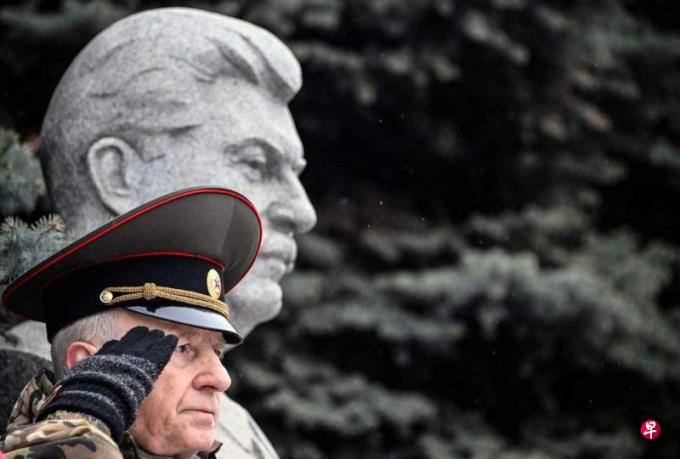
American scholar Robert Gilping believes that the decreased marginal income in the economic field is also applicable to international politics. When the territorial expansion of a country exceeds a certain limit, the cost of management and defense will quickly exceed the expansion of expansion.Income, which leads to the decline of the empire.The Roman Empire and the British Empire in history are all declining like this.
On February 24, two years ago, Russia fully invaded Ukraine on the grounds of "non -military, de -Nazi", and rapidly developed into the largest war in Europe since World War II.To understand Russia's current obsession with Ukraine, it is important to realize that Russia has never been a country in the general usage of Russian.Unlike the modern Turkish country rising from the Ottoman emperor, nor is it like British Britain, which has become the empire and lost the empire, Russia has never had an independent identity independent of the empire.As British historian Geoffrey Hosking said: "Great Britain once had an empire, but Russia used to be an empire."
The expansion of this country has a long historical background, which can be traced back to the rule of Ivan III.Under his rule, the predecessor of Russia, the Principality of Moscow, became the most powerful city -state established by the Mongolians, and the rule of the Mongolians fell behind, inheriting its rule and rule.As a result, the expansion of the Principality of Moscow began, and the so -called "gathering of Russian land" began.The expansionist vision of Ivan III was almost accepted by the ruler of the Russian Empire, the Soviet Union and the Russian Federation.As historian Stephen Kotkin pointed out, "from the rule of Ivan Lei Di (the grandson of Ivan III Ivan IV) in the 16th century.The speed of the square (129 square kilometers) is expanded, which eventually covers one -sixth of the land area of the earth.
Military strategy is undoubtedly one of the important reasons for Russia's expansion.The strong military strength in Russia's history enables it to conquer neighboring countries through force and expand its land.The ancient Moscow of Moscow gradually liberated and annexed the surrounding surrounding ministers through the war with the Mongolian Khanate, and established the unity of Russia.During the Tsarian era, Russia achieved an important port and territory along the Baltic coast through the war with the Federal, Sweden and other countries in Lithuania, and the West.During the Soviet Union, Russia won the expansion of some Eastern European countries through the war such as World War II and the Cold War.
Economic demand is another important reason for Russia's expansion.Expansion in Russian history is often related to resources and market demand.In the vast land, there are rich natural resources such as energy and minerals.To use and control these resources, Russia has continuously expanded and established related economic systems.In addition, Russia needs to expand the market to provide broader sales channels for their products and services.Therefore, Russia meets its own economic needs by expanding.
Ensuring national security is the most important purpose of Russia's expansion.The expansion in Russian history is often related to the threat and conflict of neighboring countries.Russia is located in the center of Eurasia, and the border areas are often in the hardest hit area of conflict with external forces and competition.In order to ensure its own security, Russia needs to control the surrounding countries and regions to avoid pushing forces forces.These new territory brings a longer boundary and more serious geopolitical anxiety, which makes Russia continue to expand to ensure national security.Therefore, security is equivalent to uninterrupted external conquest, and defense and expansion have become the same concept.The Russian and Ukraine War was undoubtedly a concentrated manifestation of this purpose.
But it is worth noting that this expansion in Russia has a paradox.First of all, it is manifested as a large amount of military and fiscal resources, because the newly acquired territory must be managed and defended, and the more expansion, the more resources you invest in accordingly; the second is that the expansion of territorial expansion sometimes produces the effect of "self -inspiration", that is,The expansion of the territory causes the problem of military defense. As a result, it is often eliminated by further expansion.Emperor Yekaterina said publicly: "I can't defend my border, I can only expand it."
From the perspective of British military historian Correlli Douglas Barnett, this is not the way Russia, the ancient Roman Empire and the Mongolian Empire, and the British Empire followed this expansion logic in India.In a book he mentioned from the British and its army from 1509 to 1970, he mentioned that "the corrupted and fighter locals on the British (India) territorial border threatened trade or order, and the British thus treat them to them.Adopting military operations, this has led to further expansion of British rule, which has caused Britain to oppose other indigenous peoples, and the progress process will come from scratch again. "
The most famous international relations and international political economics scholars in the West, Robert Gilpin in the United States believes that the decreased marginal income in the economic field is also applicable to international politics. Therefore"There is a limit", in the book of war and reform in world politics, Gil Ping proposed that when the territorial expansion of a country exceeds a certain limit, the cost of management and defense will quickly exceed the expansion income, which will lead to the decline of the empire declineEssenceGil Ping believes that the Roman Empire and the British Empire in history are all declining.
The history of Russia has also repeatedly proven this.After each expansion of this country, it not only cannot enhance its strength, but has contributed to its weakness.This is the case for Tsar Russia and the Soviet Union.Putin, who expanded, obviously forgot the Prime Minister of the Tsarist Russian period and the teachings of Aleksandr Gorchakov, who had led Crimean: "Territory extension represents weakness." Because many times, conflicts are all conflicts.There are more disadvantages, no actual needs, and can't digest.
The inscription is that China always likes to review and reflect on the disintegration of the Soviet Union. It is complicated and complicated, and there are divergent opinions, but few people analyze from the perspective of the empire expansion paradox.It is precisely because of the Soviet Union, because it invaded Afghanistan and could not digest that it became another straw that crushed the camel of the Soviet Union.The Soviet Union -Afghanistan war was long -lasting, which lasted more than nine years, bringing serious disasters to the people of Afghanistan.Afghanistan was killed by more than 1.3 million people, and more than 5 million people exiled abroad to refugees; the Soviet Union had more than 1.5 million officers and soldiers fighting in Afghanistan, with a total of more than 50,000 casualties and cost 45 billion rubles.This "this World News" expansion paradox has seriously weakened the Soviet national strength and has a profound impact on the international strategic pattern in the future.
The author is a Chinese economist and a financial columnist




